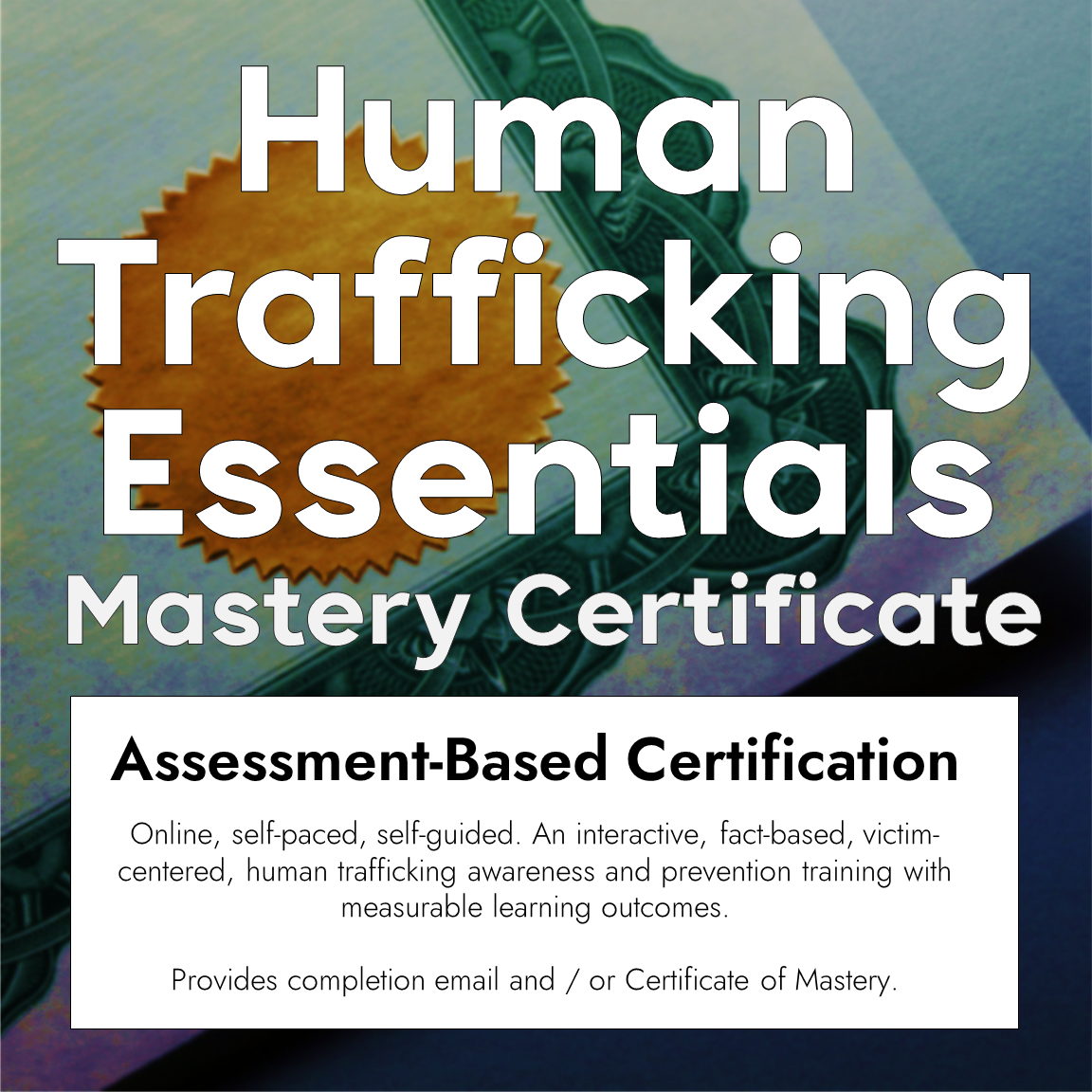Grand Jury Report on Human Sex Trafficking Calls for Increased Resources, Shared Data | The Capistrano Dispatch

More funding and collaboration is needed to bolster the county's agencies and stakeholders in combatting human sex trafficking, the Orange County Grand Jury concluded in its latest report published this month.
Prior to releasing its findings, the group conducted extensive interviews with county officials, social service personnel and subject matter experts in addition to reviewing varying documents at the local, state and federal level, such as policies and procedures, laws and statistical reports.
“In this report, the Grand Jury makes several recommendations to improve law enforcement, prosecution, awareness, and support services for victims and survivors,” the Grand Jury said in the report. “Two major areas require immediate attention: consistent funding, and enhanced systems and databases to properly track traffickers and victims.”
The report centered on three main areas from the group's investigation, including the Orange County Human Trafficking Task Force (OCHTTF), countywide data collection and sharing, and education and prevention efforts.
San Juan Capistrano Mayor Howard Hart ran for local office in 2020 on platform that, in part, identified illicit massage parlors as an issue of concern as it relates to human trafficking. Hart introduced revised regulations for massage parlors in San Juan in early 2021 that strengthened the town's ability to shut down businesses if they are reported to host illicit sexual activity.
Speaking solely about his own position and not the rest of the City Council, he said he agreed with the Grand Jury report's findings. He attributed the problem of human sex trafficking to a lack of public awareness and education.
“Once we educated the residents of San Juan Capistrano that those illicit massage parlors were, in fact, modern day sex slavery enterprises, it did not require a whole lot of convincing to pass the necessary ordinances to shut their doors and to keep them shut,” Hart said in an email.
Law enforcement agencies and nonprofits such as the San Clemente-based i-5 Freedom Network have previously explained that the illicit massage market in the U.S. is often linked to organized crime, which brings in women from other countries to perform erotic massages on clientele.
Brenda Wells, the executive director of i-5 Freedom, which works to raise awareness about and stop human trafficking, called the report a roughly accurate assessment of the current situation. However, she noted that it largely touched on previously mentioned topics that have yet to be significantly addressed.
GATHERING THE STAKEHOLDERS
Originally established in 2004, OCHTTF comprises county-affiliated organizations, law enforcement agencies, and local nonprofit organizations, and is led by the Anaheim Police Department and nonprofit Waymakers.
The task force has an objective of improving victim services, and efforts in law enforcement, probation, prosecution and social services, according to the report.
One city that isn't directly involved is San Clemente, according to town Mayor Chris Duncan.
He explained the city doesn't have the staffing to have a larger connection. However, its partnerships with the Orange County Sheriff's Department and i-5 Freedom, which are associated with the task force, help it to receive the necessary information and understanding of current issues.
Similar to their counterparts in San Juan, San Clemente's councilmembers passed an ordinance in August 2020 to strengthen local regulations governing massage parlors, in turn allowing the city to better target illicit activity and help reduce human trafficking.
Standing in the way of achieving the task force's mission is a lack of consistent funding because of a reliance on competitive federal grant funding, which has impacted its membership, and a lack of organizational structure, the report found.
Participation in the task force isn't mandatory, and the level of participation can be impacted by local budgets and priorities.
Wells agreed with the report's conclusion that the task force's funding was inconsistent, but added she was unsure of what factors contributed to the situation.
“It is true; without predictable funding, we can't get the resources we need to pursue the solutions,” she said.
She added that local law enforcement agencies should only be required to send one of their personnel if the funding to cover for a person's absence is present.
SHARING INFORMATION
The Grand Jury also referenced a previous report on the same subject released during the 2011-2012 iteration of the group, in which a shared human trafficking database among governmental agencies and nonprofits was recommended, yet not carried out.
“The absence of a centralized human trafficking database and data sharing apparatus creates a challenge to effective collaboration,” the latest report stated.
Law enforcement needs a database that allows it to easily use the information to evaluate human sex trafficking activities, the report added. Social services and nonprofits also need a shared repository that enables accountability and for accurate analysis and performance metrics to be concluded from individual agencies' data, instead of the current system.
“Organizations gather statistics they require for their own immediate funding needs without a view toward understanding and broadly measuring their own success,” according to the report.”
According to Wells, a database would be “extremely helpful,” as it would reduce the work agencies have to do if they had the ability to check whether a person involved in trafficking had been detained in other cities.
“Without knowing that, it's like every situation starts from scratch,” she said. “Conversely, (for) young individuals who are being prostituted, where have they been arrested for prostitution when they should have been referred (to victim services for exploitation)?”
Duncan referred to his previous career within the U.S. Customs and Border Protection agency, during which he was part of numerous efforts to disrupt smuggling organizations and the agency used a database to monitor who came in and out of the country.
Duncan called database information “critical,” as it would also help the county know who sex trafficking victims were.
“We want to focus on harsher penalties for these pimps and individuals that are running the (trafficking) organizations, and we want to focus on harsher penalties for the ‘Johns', the individuals who are purchasing these illicit services,” he said. “That's where I think we can make real progress, when we have a database where we know who these folks are.”
TAKING FURTHER ACTION
Regarding education and prevention, the report called for local law enforcement agencies holding out from undergoing human trafficking training—which was mandated under Proposition 35 back in 2012—to participate.
It also encouraged more public education campaigns such as the current “Be The One” initiative, which raises awareness of human sex trafficking and the risks of children being trafficked, and widespread adoption of training programs for school-aged children that aim to prevent early victimization.
At the local level, Duncan spoke to the implementation of the second phase of a series of priorities the city's Public Safety Committee drafted and recommended in spring 2022.
Priority 1 included action items such as having a city staff member serve as the main point of contact for dealing with potentially illicit massage parlors and initiating the process of conducting two random inspections of targeted businesses each year.
Priority 2, which includes incentivizing hotels and motels to educate their employees about sex trafficking and rewarding compliance with local ordinances, is scheduled to roll out soon, according to Duncan.
“(Businesses) might get a blue ribbon or logo or something that they can put (up), that lets everybody know they've taken those steps to address human trafficking,” he said, adding, “I think we've made headway on the massage parlors, and now we're trying to address it at the motels and hotels.”
Moreover, on the education front, Wells mentioned an upcoming forum on Aug. 23, organized with the help of the City of San Clemente, during which a survivor of trafficking, an OCSD Vice Department investigator, Wells herself, and others will speak to California legislators' efforts toward legalizing prostitution.
DIGGING BELOW THE SURFACE
The Grand Jury also reported other findings such as that the county's affluence and tourist attractions contribute to the amount of sex trafficking that occurs; the punishment of clients or “buyers” is slight; victims and survivors need more support from agencies and law enforcement; and limited resources restrict law enforcement's ability to act more towards fighting sex trafficking.
Wells said she hasn't seen legislation, proposed or otherwise, specifically meant to target clients.
Instead, she referenced the recently enacted Senate Bill 357, which she said has a well-meaning premise of repealing provisions related to loitering with the intent to commit prostitution.
However, she added that it would have negative consequences. One being that it could interfere with agencies, such as OCSD's Vice Department, walking the street and interacting with people who are likely being trafficked.
“They would connect with the sex workers, and they would make a relationship, and then they would ask to see their phone,” said Wells, adding, “They're going after the trafficker, not the buyer in that moment, but with this new bill that passed, that's now considered harassment. It's because (the sex workers) are not committing a crime.”
The office of State Sen. Scott Wiener (D-San Francisco), the author of the bill, previously noted that the measure doesn't decriminalize soliciting or engaging in sex work. “Rather, it simply eliminates (a) loitering offense that leads to harmful treatment of people for simply ‘appearing' to be a sex worker.”
“This crime is so subjective and inherently profiling that it allows a police officer to arrest someone purely based on how they are dressed, whether they're wearing high heels and certain kinds of make-up, how they're wearing their hair, and the like,” Wiener's office said in a media release.
Hart agreed with Wells, calling SB 357 “catastrophic” and encouraging people to contact state representatives to remind them “they cannot honestly say they support women” if the law continues to exist as written.
“One needs to understand that the coercive pimp-prostitute relationship is nothing more than human trafficking,” Hart said in his email. “And this law prevents enforcement personnel from approaching prostitutes, interacting with them, and hopefully getting them away from their tormentors.”
The Grand Jury recommended the City of Anaheim and County of Orange secure funding for all local law enforcement agencies to participate in OCHTTF, and develop a human sex trafficking database by June 30, 2024.
Additionally, it suggested Orange County fully fund education and prevention programs; the District Attorney's office publicize successful prosecution in related cases; and the County Social Service Agency develop a robust victim assistance database and implement long-term victim support programs with financial support for adults by the mid-2024 deadline.
Wells took issue with the report in relation to its use of the words “prostitute” and “sex worker,” which perpetuates attaching labels to victims of sex trafficking. A better word for people in similar situations would be “prostituted person” or “prostituting person,” she said.
The frustration circles back to her understanding that the vast majority of people in the sex work industry are not there by choice, contrary to what many believe.
“There's definitely a single-digit percentage of individuals who are in the sex work vocation by choice and by control—they're totally self-determining, totally self-capable, nobody's getting in their way,” said Wells. “For the rest, it's a very complicated, nuanced, coerced industry, where the victims are the only ones suffering over and over again.”
She added that what people may see on the faces of sex workers or prostituted persons may belie what's below the surface, and encouraged people to think of everyone as a victim first.
The report can be found at ocgrandjury.org.
This “Eyes on Trafficking” story is reprinted from its original online location.
Fair Use Notice: The PBJ Learning Knowledge Vault is dedicated to advancing understanding of various social justice issues, including human trafficking and related topics. Some of the material presented on this website may contain copyrighted material, the use of which has not always been specifically authorized by the copyright owner. We are making such material available in our efforts to promote education and awareness of these important issues. There is no other central database we are aware of, so we put this together for both historical and research purposes. Articles are categorized and tagged for ease of use. We believe that this constitutes a ‘fair use' of any such copyrighted material as provided for in section 107 of the US Copyright Law. In accordance with Title 17 U.S.C. Section 107, the material on this site is distributed without profit to those who have expressed a prior interest in receiving the included information for research and educational purposes. For more information on fair use, please visit: “17 U.S. Code § 107 – Limitations on exclusive rights” on Cornell Law School's Legal Information Institute.

ABOUT PBJ LEARNING
PBJ Learning is a leading provider of online human trafficking training, focusing on awareness and prevention education. Their interactive Human Trafficking Essentials online course is used worldwide to educate professionals and individuals how to recognize human trafficking and how to respond to potential victims. Learn on any web browser (even your mobile phone) at any time.
More stories like this can be found in your PBJ Learning Knowledge Vault.
EYES ON TRAFFICKING
This “Eyes on Trafficking” story is reprinted from its original online location.
ABOUT PBJ LEARNING
PBJ Learning is a leading provider of online human trafficking training, focusing on awareness and prevention education. Their interactive Human Trafficking Essentials online course is used worldwide to educate professionals and individuals how to recognize human trafficking and how to respond to potential victims. Learn on any web browser (even your mobile phone) at any time.
More stories like this can be found in your PBJ Learning Knowledge Vault.

